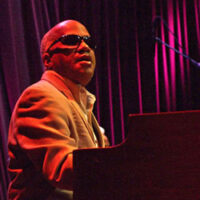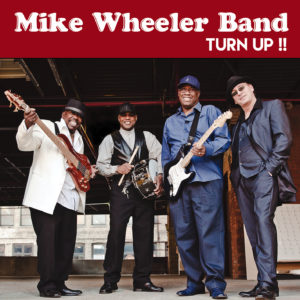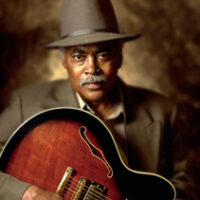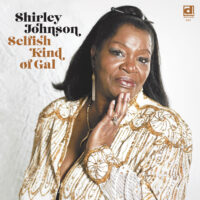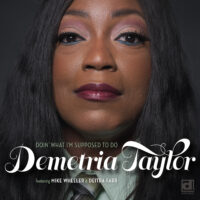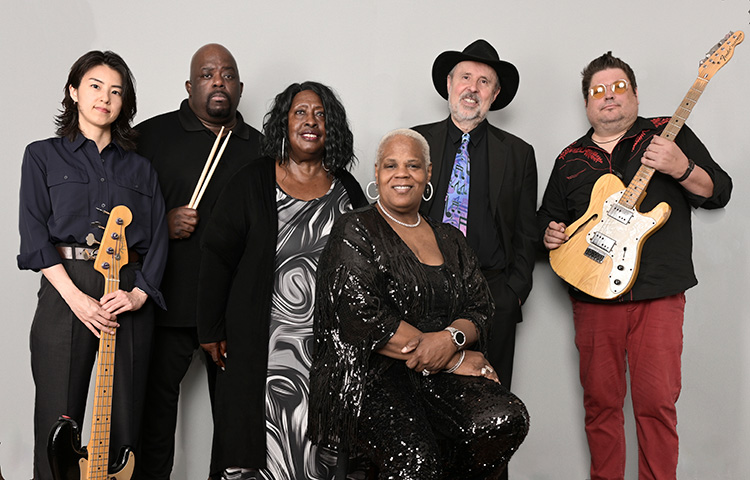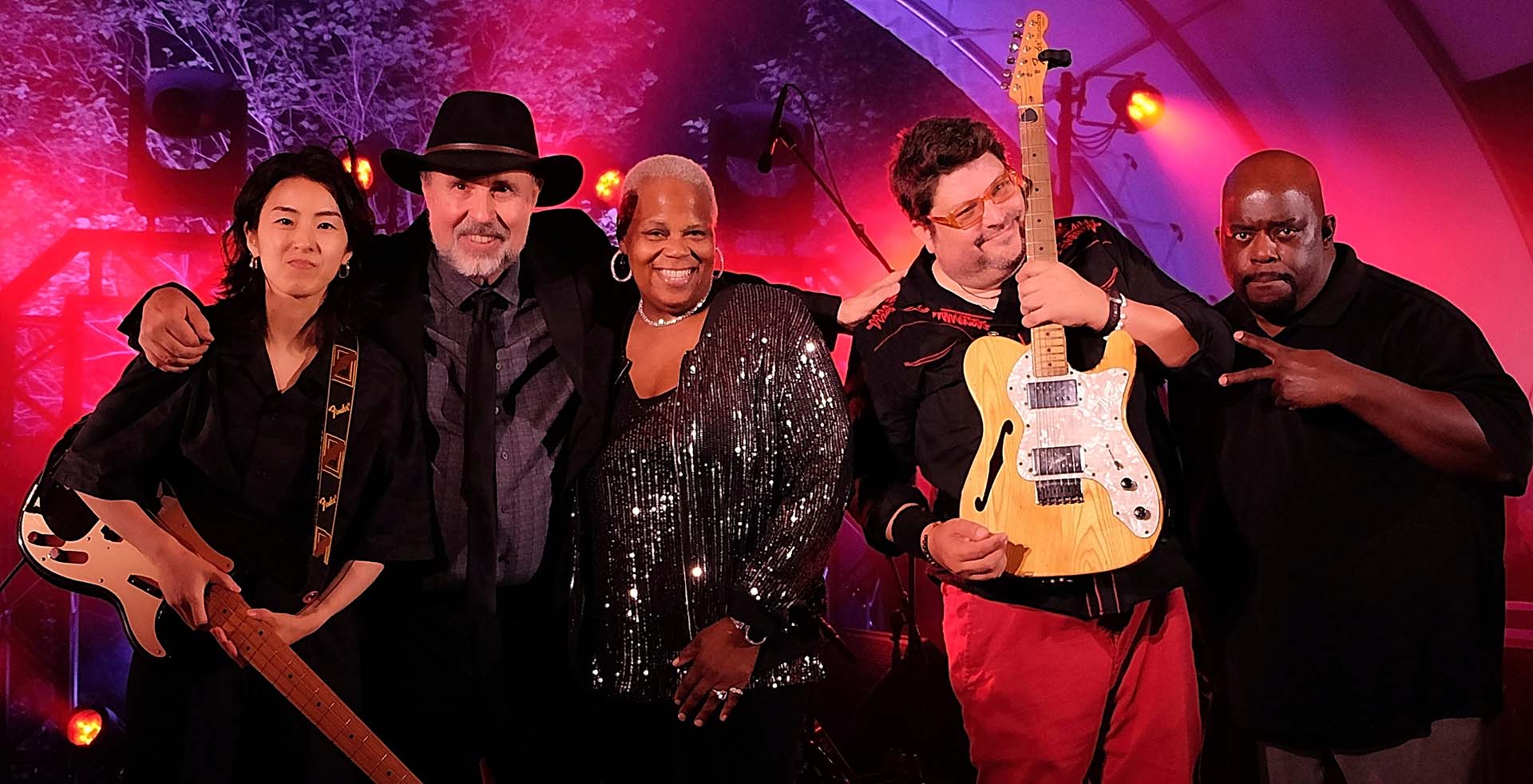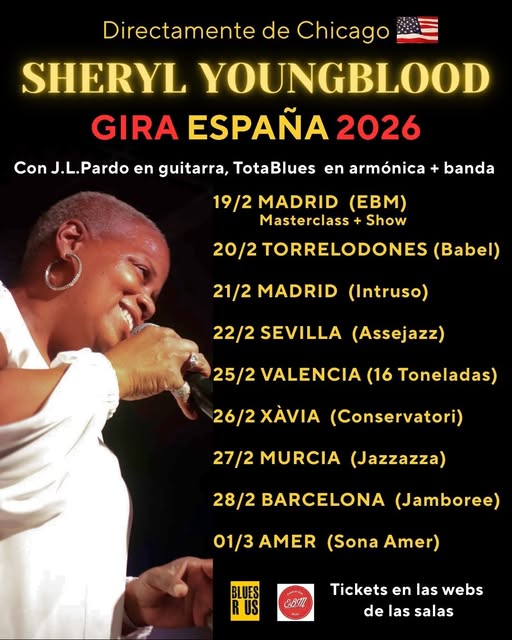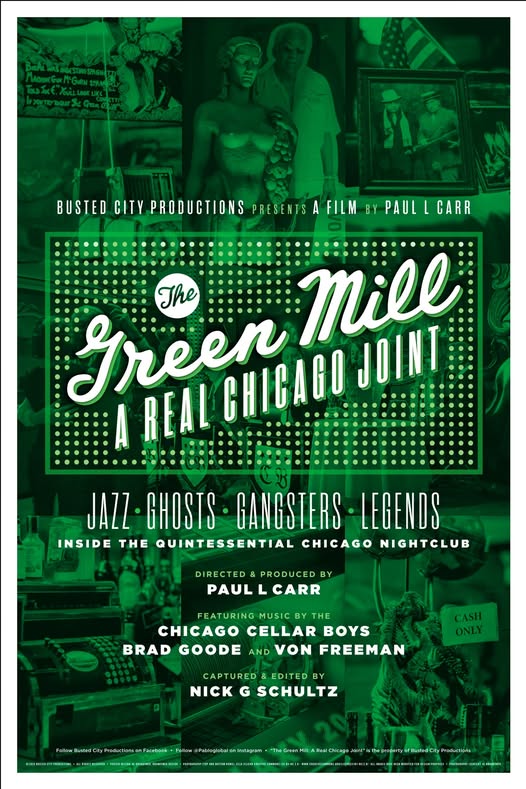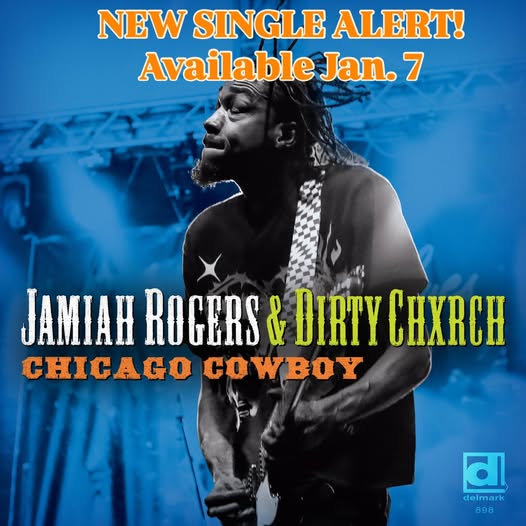More exciting BLUES NEWS from Chicago’s Delmark Records!!
Delmark is more than ALIVE in ’25!! A plethora of new releases, including this killer new “Traditional Blues with a unique sound” recording from Pierre Lacocque‘s Mississippi Heat called “DON’T LOOK BACK!”
Delmark CD party for Pierre Lacocque’s Mississippi Heat this Friday, September 19th at Buddy Guy’s Legends– Not one, nor two, but three lead vocalists –SHERYL YOUNGBLOOD, INETTA VISOR, & DANESHIA HAMILTON! Let’s party and DON’T LOOK BACK!!
Mississippi Heat
| 09/19/25 | CHICAGO, ILLINOIS | BUDDY GUY’S LEGENDS | United States |
| Add to Google Calendar Download iCal | Time: 9:30pm. Age restrictions: No Minors. Address: 700 S. WABASH. CD RELEASE PARTY FOR DON’T LOOK BACK (DELMARK RECORDS, DE 895). CELEBRATING OUR 14TH MISSISSIPPI HEAT RELEASE. WITH SHERYL YOUNGBLOOD, INETTA VISOR, AND DANESHIA HAMILTON! 2-75-MINUTE SETS. STARTING AT 9:30 PM. | ||
Lots of amazing talent on this brand new much anticipated download and CD, including the incredibly soulful Sheryl Youngblood on lead vocals!!!!! This much anticipated special release features many bandleaders in their own right, including Sheryl, as well as the lead vocals from superstar Danielle Nicole (WOW!!), along with Mississippi Heat regular co-lead vocalists Inetta Visor & Daneshia Hamilton, keys wizards Johnny Iguana & Brother John Kattke, drummer Kenny ‘Beedy Eyes’ Smith, guitar stars, Billy Flynn & Giles Corey and vocalist/harp ace Omar Coleman!!
Produced by Grammy Awards winner Michael Freeman and liner notes from Blues Music Magazine‘s editor and heart and soul, Art Tipaldi!!!
AirPlayDirect.com/PierreLacocqueDontLookBack
NEW RECORDING ON DELMARK RECORDS. AVAILABLE DIGITALLY SEPTEMBER 12, 2025.
Our album, DON’T LOOK BACK (14 ORIGINAL TRACKS), will be released on the prestigious Chicago label, Delmark Records. It will be available digitally SEPTEMBER 12.
Physical CDs will be available SEPTEMBER 19. CLICK HERE TO PRE-ORDER.
This will be our 7th Delmark recording and our 14th overall. Thanks to everyone involved, and especially to our co-producer, Grammy-Award Winner Michael Freeman whose diligence and genius lifted this project to stellar levels.

HERE ARE SOME PRE-RELEASE ADVANCED QUOTES:
“Excellent work, Pierre! Your unique and thoughtful blues playing uplifts the world. What a significant music project!” CORKY SIEGEL PIANO AND HARMONICA LEGEND, CO-FOUNDER OF THE SIEGEL-SCHWALL BAND, LEADER OF CHAMBER BLUES, & BLUES HALL OF FAME INDUCTEE
“Congrats!!! … smokin’ top to bottom!” PAUL BLAKEMORE AUDIO ENGINEER MULTI-GRAMMY WINNER-AUDIO ENGINEER SOCIETY LIFE MEMBER
“I can only describe this recording with one word: MAGNIFICENT!” WESTSIDE ANDY LINDERMAN RENOWNED BLUES HARMONICA MAESTRO
“Lacocque’s 14 originals illustrate his development as a mature musician, writer, and arranger. … Lacocque’s words paint lyrical pictures. … His songs have matured into vignettes that every listener can relate to. (Pierre) no longer imitates the masters but forges ahead with his unique style and voice. (This recording is) wonderful.”
ART TIPALDI
EDITOR OF BLUES MUSIC MAGAZINE
AND AUTHOR OF CHILDREN OF THE BLUES, PROFILES OF 49 BLUES MUSICIANS.

photo by Sam Wong
TALKIN’ BLUES PODCAST (EPISODE 406)
PIERRE LACOCQUE
TORONTO, CANADA
INTERVIEWER: MAKO FUNASAKA
Saturday, June 29, 2024
“Talkin’ Blues” podcast, hosted by Mako Funasaka. Mako is a resident of Toronto, Canada. He explains the idea behind the show: “My love of music has led me to document music and the musicians. I am fascinated by the creative process behind the songs and performances. These are my conversations with those who live in music. If you have any questions or comments, please email ta*********@*ac.com.”
Mako Funasaka
https://talkinblues.podbean.com/
A Note from Pierre:
This interview was edited for readability. It was conducted in anticipation of Mississippi Heat performing and headlining the Toronto Beaches Jazz Festival on July 21st, 2024. Elijah Randle painstakingly transcribed it. Thank you!
July 21st, 2024. Elijah Randle painstakingly transcribed it. Thank you!
Mako: Pierre, let’s start with a little bit about your family background because I find it very interesting, especially your early years. But give us a little insight into your family background.
Pierre: Well, both sides of my family are religious.
We hail from Belgium and have been there for centuries. In Belgium, the major religion is Catholicism, but we are Protestants. This tradition goes back to France, to the Huguenots’ rebellion against Catholicism.
We cherish a Huguenot cross – a Protestant cross – in the family. On my father’s side, we have ministers. My father was a minister, and his father was a minister. Our dad, André Lacocque, became a well-known theologian and a professor of the Old Testament.
My whole family, as I said, is Christian. And specifically Judeo-Christian, because we are influenced by Judaism in terms of our religious and existential way of looking at life. As strange as it may sound, we are Jewish at heart—not politically but religiously. Jesus, for us, is a central Jew. We believe in the Jewish Jesus before a schism existed between Judaism and Jesus’s later followers. Jesus reflected an aspect of Judaism we identify with, embracing the world instead of being on an intellectual or religious island. I was raised from birth to follow Judeo-Christian values.
On our mother’s side, her family built the church in their town (Ransart, Belgium). This means that a religious appreciation of life has always surrounded us.
Mako: I found it interesting that you went to a Jewish school at one point.
Pierre: Correct.
Mako: I find that interesting, as your dad was a minister.
Pierre: Absolutely. A Jewish Orthodox school.
Both sides of my family were affected by the Holocaust, by Nazism. And we were involved in sheltering Jewish families, but also non-Jewish families and escapees from prison camps. My paternal grandfather, “Jean Lacocque,” affectionately known to us as “Pèpère, was profoundly changed by the Holocaust. So much so that he converted to Judaism later in life after being a minister for decades (in Flémalle/Liège, Ransart, and the French community of Antwerp). And he moved to Israel and remarried when our biological grandmother died (our “Mèmère”). He remarried a Jewish woman, Valentine, from Tunisia, who was French-speaking. They lived and died in Ramat Gan, near Tel Aviv.
Jesus Christ was fundamentally important to us, and we did not feel a need to split from Christianity and say, “You know what? Jesus was not messianic.” We believe that he is.
But anyway, Pèpère knew influential rabbis and Jewish theologians in France and Belgium, and he argued with the director of our school, “Maïmonide” (Maïmonides, in English) – Rabbi Seligman Beer Bamberger* – “Look, your mission as a Jew, as a Jewish community, is to welcome non-jews (goyim) who want to join you, who want to be a branch of the tree. I want my grandchildren (Michel, Pierre-Emmanuel, and Elisabeth) to come. According to Jewish Law, you cannot say no. I want them to know about the Holocaust and appreciate Jewish history and theology”. I believe he also swayed the Grand Rabbi of Belgium to convince the school to accept us as students.
That’s how we joined the Athénée Maïmonide, located in Brussels.** We were the only non-Jews ever to attend the school. Eventually, after we left, I think Maïmonide had at least one half-Christian, half-Jewish student, but we were the only non-Jews attending that Orthodox school. We went through Kindergarten, Elementary, and Secondary school. I was about to enter Junior High School when we came to Chicago in 1969. Michel graduated from high school there. Elisabeth was four academic years behind me.
At Maïmonide, we learned biblical and modern Hebrew, including rabbinical commentaries like Rashi and the Talmud. My first alphabet was Hebrew. We also learned the prayers and wore kipahs—the whole thing.
It was quite unusual. But for us, it was normal because we had never experienced anything different.
Mako: Which is totally understandable. There’s no way I can ask you how that affected you because growing up religious is one thing, but to actually grow up in multiple religions is even more interesting. But it’s probably not fair to ask you because you don’t know any other, but looking back on it, how did that influence you?
Pierre: Well, there was a harmony between our schoolmates and us three. I felt I was a non-Jew more as I grew older, because that’s when you start looking at girls. I got ambivalent messages from a few parents. But not many. Overall, we were in a welcoming peer community. To this day, I feel an unbreakable bond with Jewish people. Their history, their suffering. I feel a deep and natural affinity. My whole family would say the same. If my wife Vickie—who’s Cuban—had been Jewish, out of respect for her family and ancestry, I would have likely converted. Maybe as a liberal Jew, while still acknowledging Jesus as the Central Jew.
Mako: I’ve noticed that religion played a big role in your early years. Did it limit your opportunities to explore music or sports as much as other kids? How did you first get into music?
Pierre: I was an introverted child. I had a difficult childhood—a severe father, authoritarian, and I had to deal with negative cultural issues in Belgium, too. In the 50s and 60s, Belgians looked at kids as little adults, so being a child was difficult. Showing spontaneous emotions was not well-received. Teachers called us by our last names for years, bypassing our first names.
I had friends whose parents encouraged them to play soccer, a sport I loved. I still love watching it to this day. But it was not encouraged in my home because we were strict Protestants, you know, “Study, study, study. Read, read, read.”
My father loved music. Mind you, my mother was an avid classical music lover herself. Growing up, she learned to play the piano. She played it in Church as well. She loved Purcell, especially his trumpet concertos, and had a vast collection of records from the Baroque to the Romantic period.
We enjoyed Sidney Bechet. We loved gospel singers like Clara Ward and the wonderful Ella Fitzgerald. Otis Redding, Louis Armstrong. Aretha Franklin and Ray Charles also moved me.
Once in a while, we would listen to a record as a family, and my father enjoyed it. I could see that music meant a lot to him. But overall, I had to keep my sports and music interests to myself.
When I came to Chicago, I was sixteen years old. My family’s attitude changed for the better, and I found blues music—Chicago blues- that hit me in my heart and soul.
My father gave me a harmonica when I was two or three. I cried when I played it because the sound touched me. I knew in my heart then that the harmonica was meant for me.
The sound of the harmonica spoke to me. It was a four-hole green plastic harmonica toy, but it was enough to know that it called me! While still in Europe, I listened to harmonica players. None inspired me to learn how to play it. I eventually listened to the Beatles, which I later appreciated enormously, but not at the time. Now I say, “Holy cow, man. These guys were something else.” Melodic and musical geniuses.
Even Elvis Presley’s music is so bluesy. The arrangements Elvis Presley used in his songs were well-crafted. Yet, I was not moved by him at the time, more so when I got older.
I’m a melody man. I listen to melodies all the time. I enjoy infusing melody into my playing.
If someone says, “Man, you’re so melodic,” it’s quite a compliment.
Mako: If we go back to moving to Chicago, I presume that was a significant culture shock coming from Belgium and the different countries you lived in in Europe. As a 16-year-old, what was that journey like to come to America? How did you feel about it, and how did it feel when you got here?
Pierre: Well, it was hard to say goodbye – especially to our grandparents – because we are close-knit. We have cousins, aunts, and uncles still in Belgium. Our whole family lives in Belgium, except for us in Chicago. So that was hard.
But deep down, I needed liberation.
I felt emotionally stifled by the Belgian culture, smothered in terms of the dos and don’ts, the way to act, and the way not to act. I did not feel appreciated for who I was.
I met my best friend at Maïmonide. He lives in Israel now. His name is Daniel, and he and his family are dearest to me. We keep in touch and visit each other when we can.***
But in terms of culture itself, Belgian culture at that time was repressive, not compassionate towards children. I was looking forward to the United States.
IMMIGRATING TO THE UNITED STATES (Summer of 1969)
Belgium was liberated from the Nazis by American soldiers in 1944. My family—and the country as a whole—had an idealized view of the USA. When Mississippi Heat performs in Poland, their love for Americans is also amazing. Americans helped Poland get away from Russia, Putin, and Communism. In Belgium, generations before had an idealization of the United States as well—the inclusive values, equality, and what the U.S. Constitution stood for.
In the Windy City, I was accepted. I was different, but it was viewed as a welcome difference.
Of course, being white helped, I suppose. I still have a French accent, but that was not a negative reality. In the Black community, I felt the same welcome.
In fact, I feel the same unbreakable bond with Afro-Americans as I do with Jewish people. Their history and their suffering. Since childhood, we have felt a bond and respect for all races and cultures.
Mako: So, when and how did that happen?… when you heard the Blues in Chicago and decided that this was your life.
Pierre: We came in the Summer of 1969.
My father secured a tenured professorship in Old Testament studies at the Chicago Theological Seminary and became the founding director of its Center for Judeo-Christian Studies. He, my mother, and my sister Elisabeth initially lived in Chicago from 1966 to 1967, while Michel and I stayed in Brussels with two different families, friends of our parents. Michel and I continued our studies at the Athénée Maïmonide. They returned to Brussels before finally immigrating to the U.S. as a family in 1969.
That late summer, I was walking in Hyde Park, on the University of Chicago campus, where we lived.
There were scheduled events on campus to welcome new and returning students. As I was walking, I heard a band playing and an enchanting sound I had never heard before. It was coming from blocks away, but I could hear it clearly for some reason. They had left the windows or doors open—it was hot outside—and maybe also to welcome students back to campus for their new academic quarters.
It took place on the University of Chicago campus, at a place called Ida Noyes Hall.
I kept walking toward the sound. It was like I was possessed—in the most positive way. I followed the sound until I got there. Students had to show their University of Chicago ID cards to get in, which I did not have, but they let me in anyway.
On stage was an Afro-American quartet—drums, bass, guitar, and a harmonica player blowing harp through a Fender Princeton amplifier on a chair. The sounds coming out of that amplifier were mesmerizing. His harmonica also sounded like a horn.
Eventually, the harmonica player played La Cucaracha, of which I knew the melody. And I couldn’t believe it.
His name was Big Walter Horton, also known as Shakey Horton (1918-1981). [He was 51 years old when I first saw him].
I had never heard of him. He looked like an old man. I knew nothing about him. But once I heard that harmonica sound, that was it.
It happened on a Saturday night. The next day,
I went to Harper Court in Hyde Park on Sunday to buy a harmonica, but the store was closed.
And then on Monday, I finally got my first real Hohner Marine Band harmonica. Key of C.
That experience at Ida Noyes Hall was like a religious experience for me. Not necessarily religious in a theological sense, but in the sense that it changed my life.
Mako: So that was the beginning of your journey in learning to play the harmonica. How easy was that? And I mean, you can easily make sounds out of it immediately… but to try and replicate what you heard… I presume that isn’t an easy journey… how did that journey begin?
Pierre: Well, that’s a great question. I was smitten. I had the drive; I had the passion. And for whatever reason, my father was not against me learning the harmonica! I had his blessing.
We attended the Lab School, the University of Chicago‘s high school. As a faculty benefit to my father’s teaching at the Chicago Theological Seminary, there was free tuition for professors’ kids.
A few students my age or older played harmonica at the Lab School. I would ask them questions like, “How do you do that? “How do you bend a note?”
Then, I started buying books—well, there weren’t many books then, but I bought a lot of albums. There was one book, Blues Harp, by Tony Glover (also known as Tony “Little Sun” Glover), on how to play blues harmonica, which I enjoyed.
Nowadays, of course, there’s a flood of teaching resources, especially on the Internet and YouTube. But back then, I asked questions and had to learn by ear.
I would endlessly spin the same record, listen to the harmonica player, emulate his tone and phrasing, and figure out the song’s key (and whether they played in first, second, or third positions, for instance).
I knew nothing about music theory and didn’t know how to read music.
Now, I understand much more because I am the songwriter for Mississippi Heat. I must guide my musicians: “Here’s the bass line. Here’s the tempo. Go to that chord.” I am more seasoned, and I can have musical conversations with people.
Mako: How long did it take for you to get to a point where you thought you were a decent player?
Pierre: Well, it took me maybe six to nine months to feel better than when I started—It remains that I was bad. I was awful.
But I was confident. I was so excited about being able to bend certain notes that I thought I was advanced. The truth is, I was not.
Musicians were kind to me, especially in the African American community.
I would go with my brother Michel to Theresa’s Lounge, where Junior Wells would play on Mondays.
I was shy and introverted. Now that I am older, I’m more balanced.
My brother Michel would encourage me. He would say, “Come on, let’s go take a taxi to Theresa’s.”
So, we occasionally went to Theresa’s.****
On our first visit to the club, Michel talked with Junior Wells and said, “My brother Pierre loves the harmonica. Would you mind if he sat in with you?
And Junior said, “Not at all.”
At that point, I had been playing for about six to nine months. A beginner. I couldn’t judge my skills objectively as passion was my leading emotion…. Junior called me on stage, and I started playing. You know, when I play the harmonica, I feel it. It moves me. It’s not just a bodily thing; it’s a heart thing… a soul thing. And I saw something in his eyes. The way he looked at me performing. I felt something like “love” and approval.
I could cry. Could literally cry right now thinking about it.
He looked at me affectionately, appreciating how much the harmonica meant to me.
Over the years, as we crossed paths in France and elsewhere on festival circuits, Junior would say to George Baze, his guitar player and Master of Ceremony, who eventually became Mississippi Heat’s guitar player in his later years until he passed away from cancer. Junior told him, “See, George? That’s the way the harmonica should sound.” George shared that anecdote with me when we became friends.
Junior Wells and I didn’t see each other often, but he was always warm when we did.
I had Junior agree to record a song with Mississippi Heat. I told him, “I have a song for you that I would love for you to do.” And he said, “Oh, Pierre, just call me, man. I’ll come and do it with you.”
It was for one of our earlier recordings – our first in fact, STRAIGHT FROM THE HEART – but his manager nixed it… so it never happened. He said to Junior, “No. No. No. Who are they [Mississippi Heat]?”
But I always got that from Junior in terms of love, mentorship, and respect.
A GIFT FROM JUNIOR WELLS
That night, after Junior first heard me play, he gave me two harmonicas. The very first time he had heard me!
The first was a small, high-pitched Hohner Marine Band harmonica in the key of E. Junior could sing in any key—all twelve keys.
He once said, “I don’t care about the key, man. I can sing in any key.”
He usually played high-pitched keys. Maybe it helped ensure the band didn’t drown him out. I don’t know.
But he gave me an E Hohner Marine Band harmonica.
And he also gave me his 16-hole chromatic harmonica.
I said to him, “Junior, thank you, but I can’t accept that”.
I kept the E harmonica. And I said, “Look, Junior, my brother Michel and I would love to invite you over. We’re going to make chicken Kiev. I don’t know if you like chicken with butter, but we’d love to have you over. We live in Hyde Park.” We scheduled a lunch meeting time.
He never came (laughs).
But our bond has ever changed.
Mako: It’s one thing to learn how to play the harmonica, but it’s another thing to develop your own sound… there’s a difference, I assume, between just playing harmonica and playing amplified harmonica. How long did it take you to get to a comfortable level with your amplified harmonica playing?
Pierre: The amplified harmonica is what excites me. Some harp players – like Joe Filisko – can do amazing acoustic work—the Fox Chase style, and other incredible percussive techniques.
But as for me, the horn sound on the amplified harp is what inspires me.
At first, I studied every note I could from the masters—Big Walter Horton, Sonny Boy Williamson (SB #II especially), Carey Bell, Junior Wells, Paul Butterfield, Paul Oscher, Papa Lightfoot, and James Cotton (whose early harp tone was phenomenal). Of all these harp players, Little Walter became my master.
I was smitten with Little Walter’s creativity, his phrasing, amplified tone, and unpredictability—he never repeated himself. His imagination, his sound, and the echo he used were mind-blowing. I also use reverb and a little echo to lift my playing. I took that from him.
Little Walter didn’t always use echo. But typically, Chess Records would put his amp in their studio’s bathroom to get natural reverb and echo sounds.
His amplified harmonica is heavenly.
For years, I studied songs like Chicago Bound, I Got My Mojo, Walking by Myself, Scratch My Back, Rattlesnake, and other harp songs note for note.
But after years of getting into this, I stopped playing the harmonica altogether. I stopped playing for at least eight years.
I chose the academic route. I followed my father’s path.
As an introvert, I needed to tell my story (to myself) in words. There was so much pain in my life—so many emotions… eventually I ended up in Montreal, Canada, for six years… but the difficult moments in my childhood with an authoritarian father, who, later in life, became one of my best friends.
I was lucky. I had two fathers. One was overwhelming, scary, and crushing, while the other was apologetic and kind.
Things changed for the better when I was in my early twenties, and they changed for him when we moved to Chicago.
Mako: Do you know why your father changed? Because people don’t usually change, especially someone who was very demanding and challenging to you. How did that change happen?
Pierre: Financial security helped calm him down. We were dirt poor in Belgium. Even though he was a professor, the Faculté Protestante de Bruxelles sometimes couldn’t pay him.
My mother didn’t work for a long time—she was raising us. She used to have envelopes with budgets written on them; that’s how dire it was.
In his case, my father’s passion ruled him. He was a scholar. His passion ruled him, so he didn’t want to be bothered. That’s how excited he was about the Old Testament and related fields like Philosophy, History of Religions, Literature, and Psychology. Thanks to him, we knew world-famous people. At the University of Chicago, we were around many well-known intellectuals.
But he had no patience for his children, for me.
Judeo-Christian wisdom played a role in his later change.
As I said, our family deeply studied and appreciated Judeo-Christian thought – not just theology, but reflections about life, how to respond to your neighbor, cherishing your children, and the central role of community. Eventually, I think he just … understood.
My six years away in Montreal may have helped. He knew I suffered a lot.
I suffered from panic attacks.
I had a rough time in my late teens in Montreal (I went to study Psychology (bachelor’s and master’s degrees) at McGill University from 1971-1976. In 1970, also in Montréal, I finished my French Baccalaureate at the Collège Stanislas.
I was going through a traumatic time.
I was still playing music, but it stopped feeding me.
Strangely enough (to my dismay), it didn’t fulfill me anymore.
It was a message from my Inner Child (subconscious) that I needed to express in words who I am, what the meaning of my life is, and why I am alive.
I needed to integrate the teachings I had received from my Jewish school, from my dear mother, my father, and my grandparents.
I had been taught values but needed time to process them, so I turned to psychology.
Mako: You went into psychology, which is interesting because you were dealing with all these issues personally— having had panic attacks myself, I know from experience how difficult that is. It can take over your life… But how difficult was it for you to decide to stop playing music?
Pierre: You know, I often talk about the word necessity.
I say “necessity” when people ask me why I play music and endure the headaches associated with being a band leader. I need to play. I need to be creative.
Yet at the time, it was a necessity for me to … stop!
Because the more I played, the deeper my depression got. It wasn’t just anxiety or panic attacks—but it was also a profound, suicidal feeling. I was studying then, but music was just amplifying the worst feelings. I had to leave music.
I talked to my brother, sister, and parents and told this to anyone who loved me. It was a clear decision at that point: I had to stop, get my head together, and leave the music world.
I could barely go to class at McGill University, but I had a sense of pride, or maybe duty… that I didn’t want to be a failure, even though I felt like one.
So, I kept pushing forward, despite my pain.
One thing about me, Mako, that worked in my favor is that people liked me. This touched me despite my feeling unworthy, and I have been lucky in life that way ever since I was a child.
Even in my classes at McGill University, people showed me kind regards even though I was hanging by a thread. My dear friends Murray and Gary, with whom I stay close, are examples of this reality. We keep in touch. Fifty years later!
I started reading Philosophy, and Jewish and Christian theologians—something my father was into, but I had rebelled against.
I wasn’t interested in studying them before, as I was more into music and soccer.
Mako: I think we should clarify—everything you were going through wasn’t because of music, right? The anxiety, the panic attacks—they had nothing to do with and weren’t directly related to playing music?
Pierre: No, no. The band I played with—the Albert Failey Blues Band (and later, Oven) in Montreal—was wonderful and welcoming.
It wasn’t about them or the music community. Music brought me to a nonverbal depth that amplified something inside me that needed to be worked out. It had to do with my identity. Why am I alive? Why do I choose to stay alive?
Music was bringing those questions to the surface, amplifying them.
I stopped playing the harmonica for years. I studied literature, philosophy, existential psychology, Jewish mysticism, and theology. I became a writer. I published articles on meaning in life and mental health, and co-wrote a psycho-religious book on the prophet Jonah with my dad. That was the beginning of a lasting reconciliation with him. It helped enormously. It gave me a sense of balance … until I couldn’t hold music off anymore.
About eight years later, when my studies were done, I worked as a psychologist and finished my Ph.D. at Northwestern University.
Then came another crisis.
It was a midlife crisis … It was severe. By then, I was married, and we had our children, Jonathan and Natalie, whom I adored.
My inner voice told me, “Pierre, you’re growing too old focusing only on psychology. Your inner child needs to come out more.”
I was doing research and enjoying my profession as a therapist. It gave me a steady and wonderful purpose as I enjoyed helping people.
But I was following in my father’s footsteps, really.
I loved reading, taking notes, and publishing.
That was my joy. I also noticed that my wife Vickie and children were paying the price. … They barely saw me and missed me.
I was turning into my dad. Not in temperament—because I’m not moody like him in that way… I’m more like my mother, who was kind and gentle.
But in terms of intensity, I was like him. I was consumed by my work. And it was too much for my family.
So, I had another crisis and thought, “I long to go back to music.”
That was in the late ‘80s.
Mako: At that point, had you been playing music at all? Did you ever pick up the harmonica and just mess around?
Pierre: I rarely played. At parties, I might have jammed. But nothing consistent. I wasn’t keeping up with my technique, which helped me in the long run. When I came back to music years later, I was myself. I found my voice and my style.
I had already studied Big Walter, Little Walter, James Cotton, all those guys. Not that I had mastered them, but I had already gone down that path.
So, when I picked up the harmonica again, my memory was still there.
I just needed to practice and get my wind back.
And that’s when I started developing my own phrasings.
My brother Michel—he was always influential.
He told me, “Write your own songs.”
By then, I had started my band, Mississippi Heat (with Jon McDonald on guitar/vocals, Bob Stroger on bass (he was not singing yet; his first vocals were on our LEARNED THE HARD WAY CD, a song called “Keep Your Hands Off of Her”), and Robert “Golden Voice” Covington on drums and lead vocals).
I don’t sing, but I write the songs. The lyrics, the music.
Mako: Before we get to Mississippi Heat, when did you decide to start playing again? How much had you lost? How good were you at that point? And what steps did you take to get to Mississippi Heat?
Pierre: As I mentioned, I still had the basics.
The bending—I am not saying my bending was superb, but it was there. I had familiarity with the instrument.
That helped me.
But I had stopped following the blues scene.
I had never heard of Kim Wilson, for example! Or of Mark Hummel, Paul DeLay, William Clarke, Rod Piazza, Gary Primich … I had not heard or followed them. I had stopped listening to blues music.
Upon my return to the harmonica, I would go to jam sessions, like on Sundays, at No Exit Café, on Glenwood Avenue (Northside of Chicago). It still exists today.
I became friends with musicians like Carl Schneider, Joe Zaklan, and Sonny Wimberly there. I also met Jon McDonald, with whom I eventually founded the first incarnation of Mississippi Heat (with co-founders Bob Stroger and Robert Covington).
A friend during that rebirth phase was Tad Robinson. An excellent singer and harmonica player. He introduced me to harp players’ recordings and was gracious enough to invite me to play with him at some of his gigs. I’ll never forget his generosity.
.So, you know, it’s just like, wow… I had been out of the blues scene. I eventually got to hear Billy Branch in Chicago. The drive and passion remained, but I chose to work on my own playing style. I also devoted time to Vickie and to Jonathan and Natalie.
As a harp player, I knew I wouldn’t ever be as impressive as Little Walter. My inspiration this time around was not to repeat others. I focused on building on the harp legends who had laid the foundation. I would not be here today without Little and Big Walter, the two Sonny Boys, and many others. Occasionally, I throw an ode to them, a passage in a boogie-woogie… or a harp phrase from Junior Wells. I discovered that I am happiest musically when I am myself.
Mako: So, in 1991, you were invited to play at a Jon McDonald gig at Cafe Lura (Chicago), and this was to be the beginning of Mississippi Heat. You’ve done 14 albums, so you know now, but back then, did you know what you wanted to accomplish with Mississippi Heat?
Pierre: No. Mississippi Heat didn’t exist yet.
Before Café Lura, I was just sitting with different bands—whoever would have me.
But at Café Lura, I played with Jon McDonald, Bob Stroger, and Robert Covington. We were a quartet.
My brother Michel was in the audience.
He saw how excited I was and told me, “Why don’t you form a band?”
We talked and all said, “Yeah, let’s do it!”.
And Michel said, “I’ll be your manager. I’ll find work for you guys.”
He was the first manager of Mississippi Heat and still is. He works for Mississippi Heat every single day. My sister Elisabeth is also involved with helping the band. I am blessed.
Mako: Michel is the one who made this happen… What was Michel’s background? What made him think he could be a manager?
Pierre: None. It was all instinct. It wasn’t based on experience. It was based on passion. And love and belief in me, his brother. It was faith. Let’s give it a shot. And it just kept going.
Mako: It’s difficult keeping a band together. You’ve had a lot of different musicians in Mississippi Heat. How do you maintain the band’s identity and sound through all that?
Pierre: That’s a wonderful question… Again, my brother Michel was influential.
He told me, “Manu—my middle name is Emmanuel, so ‘Manu’ for short—write your own songs. … Everyone around you is world-class, but your songs will keep Mississippi Heat fresh and unique. Your songs. Your soul. Your vision.”
Many musicians around me were and are indeed world-class.
I’ve been blessed to work with some of the greatest musicians in the Windy City—Carl Weathersby, Deitra Farr, Inetta Visor, Bob Stroger, Little Smokey Smothers, Giles Corey, Billy Flynn, Katherine Davis, Sheryl Youngblood, John Primer, Daneshia Hamilton, Katherine Davis, and Lurrie Bell.
The latest album—the one you haven’t heard yet, Mako — has 14 songs written by me.
That’s the first time that’s ever happened.
Usually, I’d include a few songs from band members.
But because of COVID, I wrote so many that I thought, Why not release my songs?
At this stage in my life, I wanted to push myself further.
In the beginning, I was a sideman in my own band.
I was the least experienced musician.
I leaned on band members like Deitra Farr to guide me.
She was incredibly protective and inspiring.
She was in my corner, a fantastic friend to me from the get-go.
Mako: How did you find your balance because you had your other work… and starting a band? How did you find your balance between the two?
Pierre: Music is more of a physical release for me, so I don’t need to play it 12 hours a day.
When I was writing and publishing as a psychologist, I was obsessed. I rarely stopped. I kept going and going. So, I learned my lesson from that first passion. I decided I wouldn’t repeat the never-ending inspiration.
I would focus on my wife, Vickie, and my dear children. It’s all about balance and harmony.
For me, love and work—as Freud said—that’s the meaning of life.
And we have grandchildren now, so that’s even more special to me.
And Vickie sometimes pulls me back.
She’ll say, “You are traveling too much. We need more time together.” Fair enough.
She knows that no matter what, she can’t ask me to stop playing music. And I respect that she is doing her best to support me.
In return, I give her as much quality time as I can. We’ve been married for 44 years, so we know what to do now to keep the marriage happy and vibrant. Recently, she came with me to the Lucerne Blues Festival in Switzerland and Buenos Aires, Argentina.
Mako: How about songwriting? How easy was that for you? Because it’s one thing to play harmonica and develop your own sound, but writing songs is another skill.
Pierre: Another excellent question.
For me, songs typically start nonverbally. I listen to thousands of them, mostly amplified post-war blues.
Sometimes, I hear just 10 seconds of a song—a turnaround, a bass line—and I think, Wait a second… I can do something with that.
I’ll ask myself, What am I feeling? What mood does this evoke in me?
Once I have a theme or topic, I write down as many free-association ideas as possible.
For example, on the new album, I have a song called “Blue Amber.” It’s about the plight of being a stepchild.
The mother tells her lover, “How come you don’t like Amber? Amber is my child.” So, the song is built around that. I asked myself, What’s the emotional tension here?
The man in the song is jealous of the mother’s love for her daughter, Amber. His stepchild. This is a common theme. In blended families, this can be a devastating issue—”You give your child too much devotion… You don’t give me enough attention.”
Many of my songs are based on true stories. Sometimes they’re from people I know—like addiction, which I’ve written about lately.
It’s a reality in my own family. I’ve seen addiction destroy families. So those stories make their way into my songs. I have a song… at least one in the new album about it (“Four Steel Walls”).
Mako: Tell me about the new album. It’s your 14th. When is it coming out? What’s it called? Do you have any details you can share?
Pierre: It’s called DON’T LOOK BACK. Delmark Records (DE895) will release it in September 2025 (digital and CD, and later, on vinyl formats).
I had record companies interested in checking it out, but wanted a licensing deal. I didn’t want to sell the master outright—too much money is invested in this. The publication rights and ownership will return to me, Vickie, the kids, and my grandkids. As I said, the 14 songs are my originals. Besides, Delmark Records was a natural choice given my long history with them. I am delighted.
Michael Freeman returns as my co-producer. Our 7th project. His ear and vision are uncanny, as is his support for me. We have been working as a team since the late 1990s. We also have Kenny “Beedy Eyes” Smith as a guest. Billy Flynn plays on most songs. Other guests include Na-Di-Ma (three ex-background singers with Aretha Franklin), Danielle Nicole, Daneshia Hamilton, and more. I am thrilled. Our singer, Sheryl Youngblood, is phenomenal and ridiculously talented. She has her own career but sings with us, too.
Inetta Visor – who’s been with Mississippi Heat for over 20 years – is still involved with us. She has health issues, so I can’t always take her on tour, but when I can have her come, I do. Other guests, like Johnny Iguana and John Kattke, are also featured.
Omar Coleman, a fantastic singer and harmonica player from Chicago, plays with me on a harp duet—a boogie-woogie instrumental called “Moonshine Man.” He plays acoustic, and I play amplified. We recorded two songs together (he also sings and plays with me on “Four Steel Walls”). DON’T LOOK BACK is the bluesiest project I’ve done in years.
Mako: You’re coming to the Toronto Beaches Jazz Festival on July 21st (2024). You’re also touring Canada and the Northeast… My final question: From that little kid with the plastic harmonica to being in Montreal to having done 14 albums with Mississippi Heat, how do you feel when you look back on your career?
Pierre: I am delighted. I feel privileged. I don’t know how I survived all these years as a band leader. Being a leader is not easy—there have been ups and downs.
But I’m proud of the soul, the commitment, and the emotions I’ve put into this. It’s been an honor. I want to think that I always put my musicians first, financially and otherwise. I treat them with the utmost respect. Whether people stay with me or not, it is rarely because of personality issues with me. It is usually because of health problems, conflicts with people’s personal lives, and/or career goals. With Inetta, the syndrome appears chronic, but I will never give up on her.
I am blessed to be a part of Chicago’s Blues history and honored to have been inducted into the Chicago Blues Hall of Fame.
Mako: Well, Pierre, thank you so much. I really appreciate it.
Pierre: Thank you, Mako. It felt so comfortable talking to you.
NOTES
* From YERUSHA-European Jewish Archives Portal: in**@*****mb.org
https://www.yerusha-search.eu/viewer/metadata/SAB-0546/
Seligman Beer Bamberger, born in Halberstadt in Germany in 1918, found refuge in Belgium, where he undertook Talmudic studies. He was heavily involved in the religious reconstruction after the war, i.e. within the Aide aux Israélites Victimes de la Guerre; he directed the Orphelinat israélite de Bruxelles which he transformed into the École Israélite, all the while giving courses of Jewish religion to a dozen schools and athenaeums. He directed the École Israélite which would become the Athenée Maïmonide. The school would later bear his name. Bamberger notably intervened on behalf of almost a hundred Polish Jewish families, so that they could stay in Belgium (ca. 1955-1966). Finally, he played a large role in the Communauté israélite Maale of Uccle-Forest and became the honorary president of its synagogue (opened in 1984). (D. Dratwa, “Bamberger, Seligman Beer”, in J.-P. Schreiber, Dictionnaire biographique des Juifs de Belgique. Figures du judaïsme belge, XIXe-XXe siècles, Bruxelles, De Boeck, 2002, p. 193).
** (From the Telegraphic Jewish News (2013):
https://www.jta.org/2013/01/15/lifestyle/for-a-jewish-school-in-downtown-brussels-its-relocate-or-shut-down
“Established on September 1st, 1947, as a testament to Belgian Jewry’s post-Holocaust revival, the Athénée Maimonide Bruxelles school once accommodated 600 students in its spacious building in downtown Brussels, but now (2003) has only 150. Enrollment entered a free fall 10 years ago, as Jews left the area for the suburbs and were replaced by immigrants, many of them Muslims, who made Jewish parents believe the area was unsafe. …
As anti-Semitic attacks spiked during the second Palestinian intifada in the early 2000s, parents who themselves were proud Maimonides alumni enrolled their children elsewhere, citing security concerns. With fewer students, the school went massively into debt; Maimonides now owes various government bodies a total of $8 million.
… in 1945, when Seligman (Beer) Bamberger, an educator who survived the Holocaust, first laid the groundwork for what would become Maimonides.
‘He placed a table and a chair on the platform of the Gare du Midi train station and asked random children if they were Jewish,’ Wajc (former school director) recounts.
Within two years, Bamberger had attracted 100 children whom he taught in a local community center. The school was established formally in 1947 … near the train station. …
It was first located in the rue des Patriotes, moved to rue du Canal 65 in September 1950, and finally to boulevard Poincaré 67 in March 1966. [PIERRE’S NOTES: Michel, Elisabeth, and I studied at both Rue du Canal and Boulevard Poincaré locations].
The school accommodated 80 students at its creation in 1947. Three years later, it had 5 classes and 130 children aged 4 to 14. From September 1959, the Jewish school organized high school classes. The first ‘retorica’ class graduated in 1965 [PIERRE’S NOTES: We stayed at the school until 1969. Michel graduated from the Athénée Maïmonide that year.] The school was the only Jewish school in the capital, while in Antwerp, the two Jewish schools accommodated over a thousand children. The school cafeteria, funded in part by the Centrale d’Œuvres sociales juives, offers hot kosher meals to about a hundred children. The goals of the non-profit association École israélite de Bruxelles are the maintenance of management of a primary and secondary school as well as a kindergarten in accordance with the regulations and curricula of the Ministry of Public Education, the organization of religious education based on traditional Judaism, and the teaching of Hebrew and the history of the Jewish people. Today [2013], the school is called Athénée Maïmonide – école S.B. Bamberger, after its founder and long-time principal. New buildings were inaugurated in 1993. The school include[d] a nursery, preschool, primary, and secondary classes. The number of pupils at the school is declining. In 2013, a partial relocation of the school was organized to new premises in the rue du Beau Site in Ixelles.” (Annexes au Moniteur belge, May 12, 1966. “Statuts de l’école israélite de Bruxelles asbl”, Archives de l’école israélite de Bruxelles, École Maïmonide.
*** For years, Daniel never knew that we were Christians. Once he found out, nothing changed in our relationship. We always had a special bond.
**** The Hyde Park neighborhood, where we lived, was near Theresa’s. Our home was at the corner of 57th Street and Dorchester Avenue. Theresa’s Lounge – also known as “Theresa’s Tavern” and “T’s Basement” – was on 48th Street and Indiana. About 10 minutes by taxi. Theresa Needham was the friendly owner. She ruled the club with a fist. But towards us, she showed warmth and a genuine welcome. She or Junior Wells would be protective of us, and one or the other would walk us out of the club while waiting for a taxi to return home.


